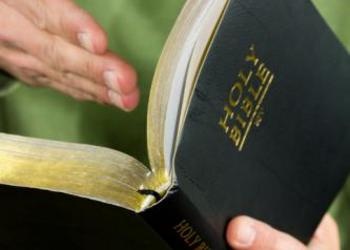Are There Other Gospels?

The Bible calls the gospel "the gospel of the Kingdom of God" (Mark 1:14) or simply "the gospel of the kingdom" (Matthew 4:23, Matthew 9:35, Matthew 24:14). But the biblical writers used other names for it as well. For instance, the Bible speaks of the "gospel of Christ" and the "gospel of God." Do these names refer to various messages or different gospels?
As we will see, these are other terms for the same message preached by Jesus Christ.
For example, the term "gospel of God" simply means that it was a message of good news that originated with God. The apostle Peter tells us that the gospel was sent from God through Jesus Christ. Notice Acts 10:36-37: "The word which God sent to the children of Israel, preaching peace through Jesus Christ-He is Lord of all-that word you know, which was proclaimed throughout all Judea, and began from Galilee after the baptism which John preached."
It was in Galilee that the gospel of the Kingdom of God was first preached after John's ministry had ended. It was this same gospel which Peter says God sent to the children of Israel by the preaching of Jesus Christ. Hence we see the term "gospel of God" and also the words the "gospel of Christ."
The gospel of God is God's gospel. The gospel of Jesus Christ is the gospel Jesus brought as God's messenger.
In a similar manner, Paul sometimes uses the term "my gospel" (Romans 2:16, Romans 16:25, 2 Timothy 2:8). This does not mean it originated with Paul, nor was it a gospel about Paul. It was a message he received directly from Jesus Christ. "...The gospel which was preached by me...came through the revelation of Jesus Christ," he said (Galatians 1:11-12). The term "my gospel" makes sense because he was the one preaching it.
What about "the gospel of the grace of God" (Acts 20:24)? From the beginning we are called by grace, then justified by grace and also saved by grace. The idea "gospel of grace" is another appropriate term for the same gospel Jesus preached.
The good news of the Kingdom is also called "the gospel of your salvation" (Ephesians 1:13). Since the gospel of the Kingdom of God is about your entrance into the Kingdom of God and is synonymous with salvation, there is no conflict with the other terms for the gospel.
In Revelation 14:6, it is called "the everlasting gospel." Why? Because God's kingdom was planned even before the first man was created. "Then the King will say to those on His right hand, 'Come, you blessed of My Father, inherit the kingdom prepared for you from the foundation of the world'" (Matthew 25:34). God's kingdom itself will last forever (Psalm 145:13; Daniel 4:3, Daniel 4:34, Daniel 7:14, Daniel 7:27; 2 Peter 1:11).
"The gospel of peace" is also used to describe this gospel (Romans 10:15; Ephesians 6:15). Peace is an important consequence of the gospel of the Kingdom. Prophesying of God's Kingdom, Isaiah said "Of the increase of His government and peace there will be no end..." (Isaiah 9:7).
These words and phrases all describe the same gospel. The writers of the New Testament simply used terms that emphasized various aspects of the same wonderful message. Jesus came preaching the gospel of the Kingdom of God (Mark 1:14-15), continued to preach it throughout His ministry (Acts 1:3) and taught His disciples to preach the same message (Matthew 10:7). Although the words to describe it varied, the message is the same. GN